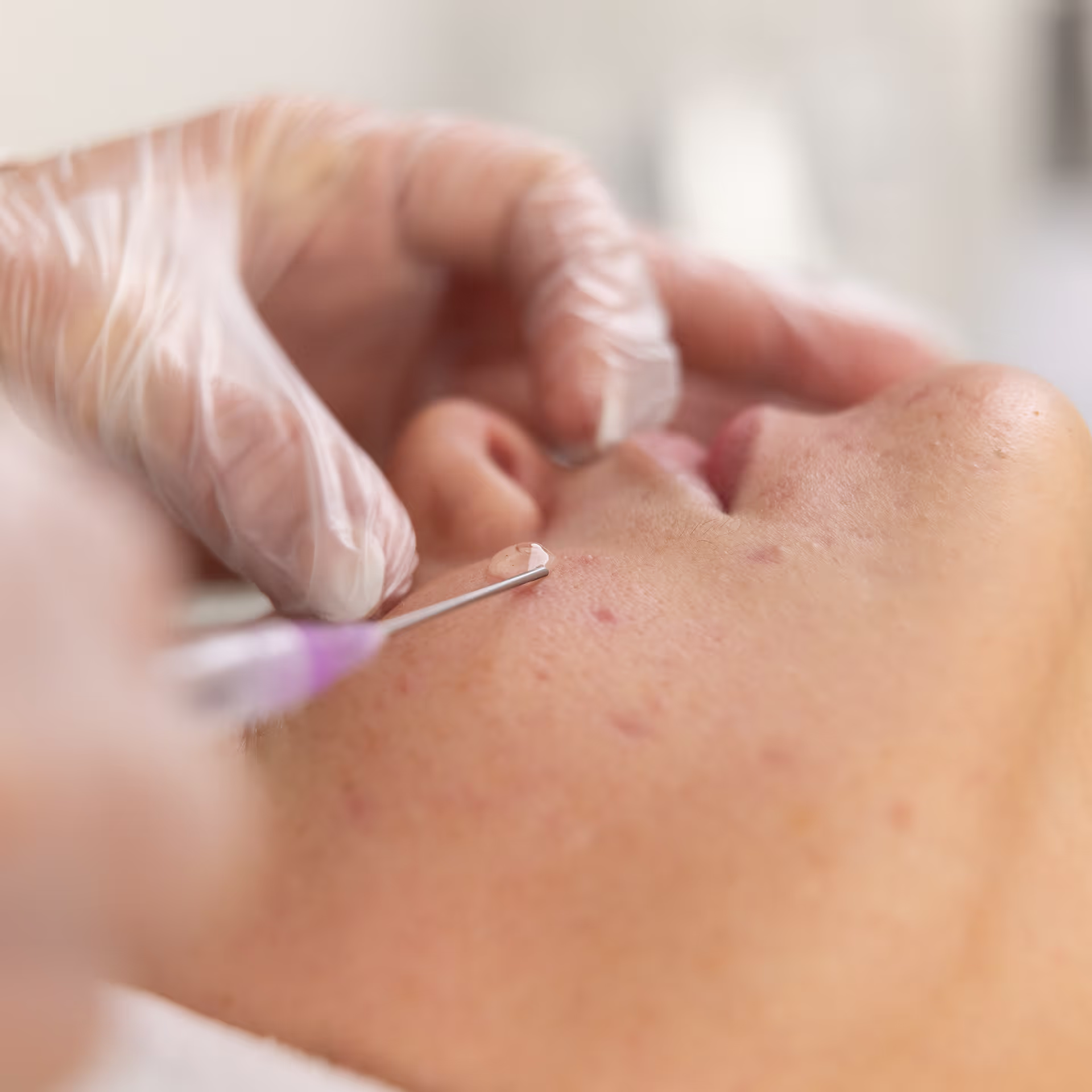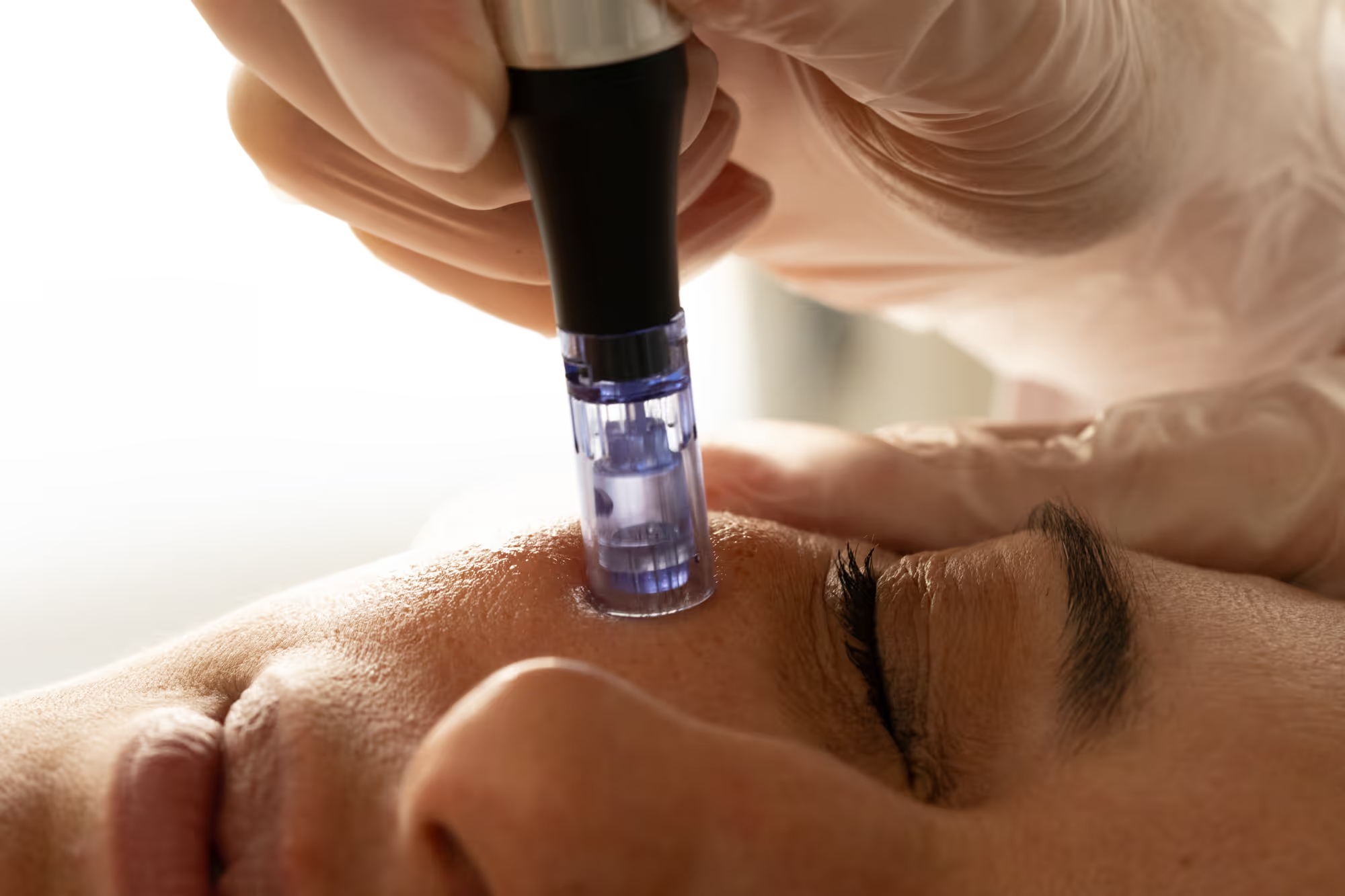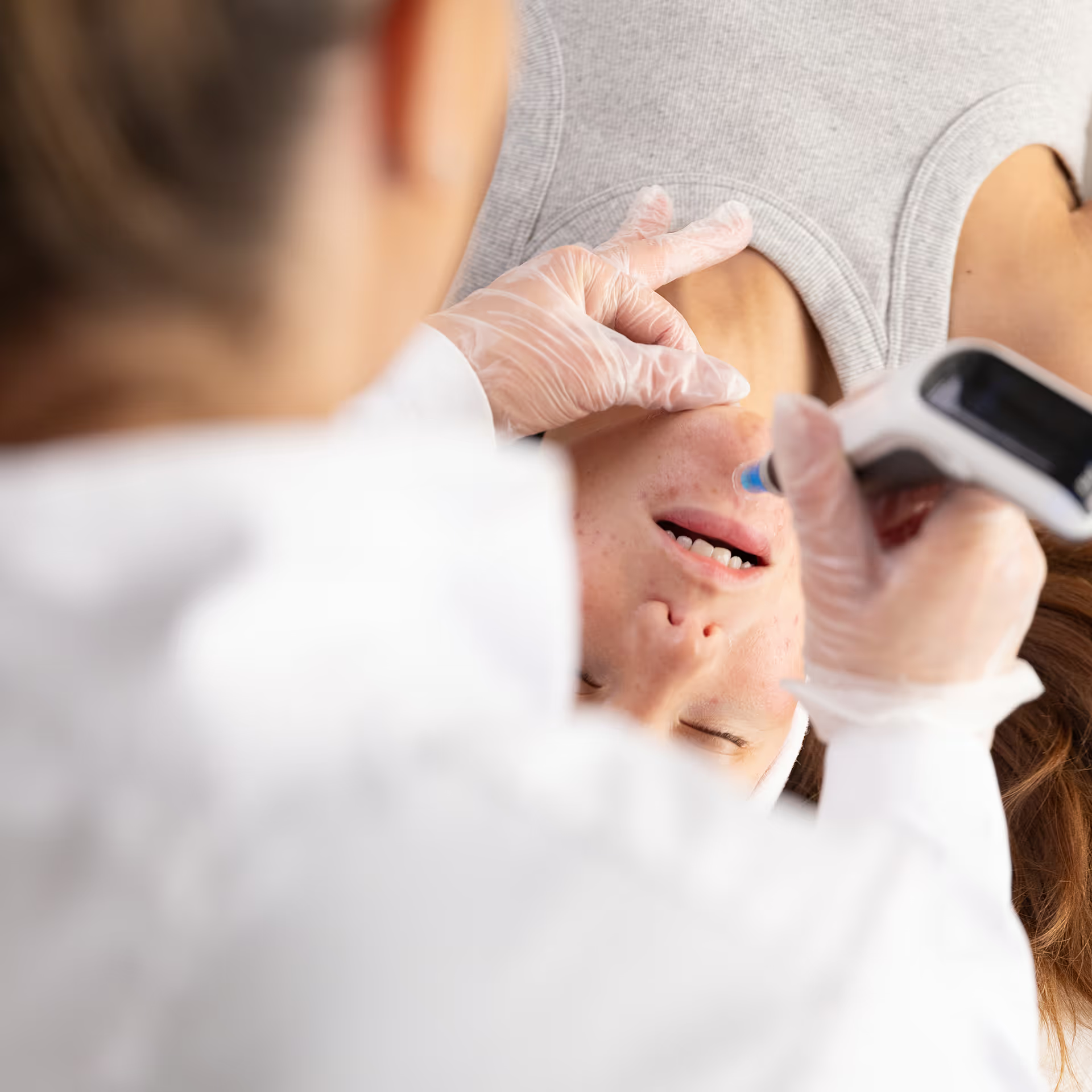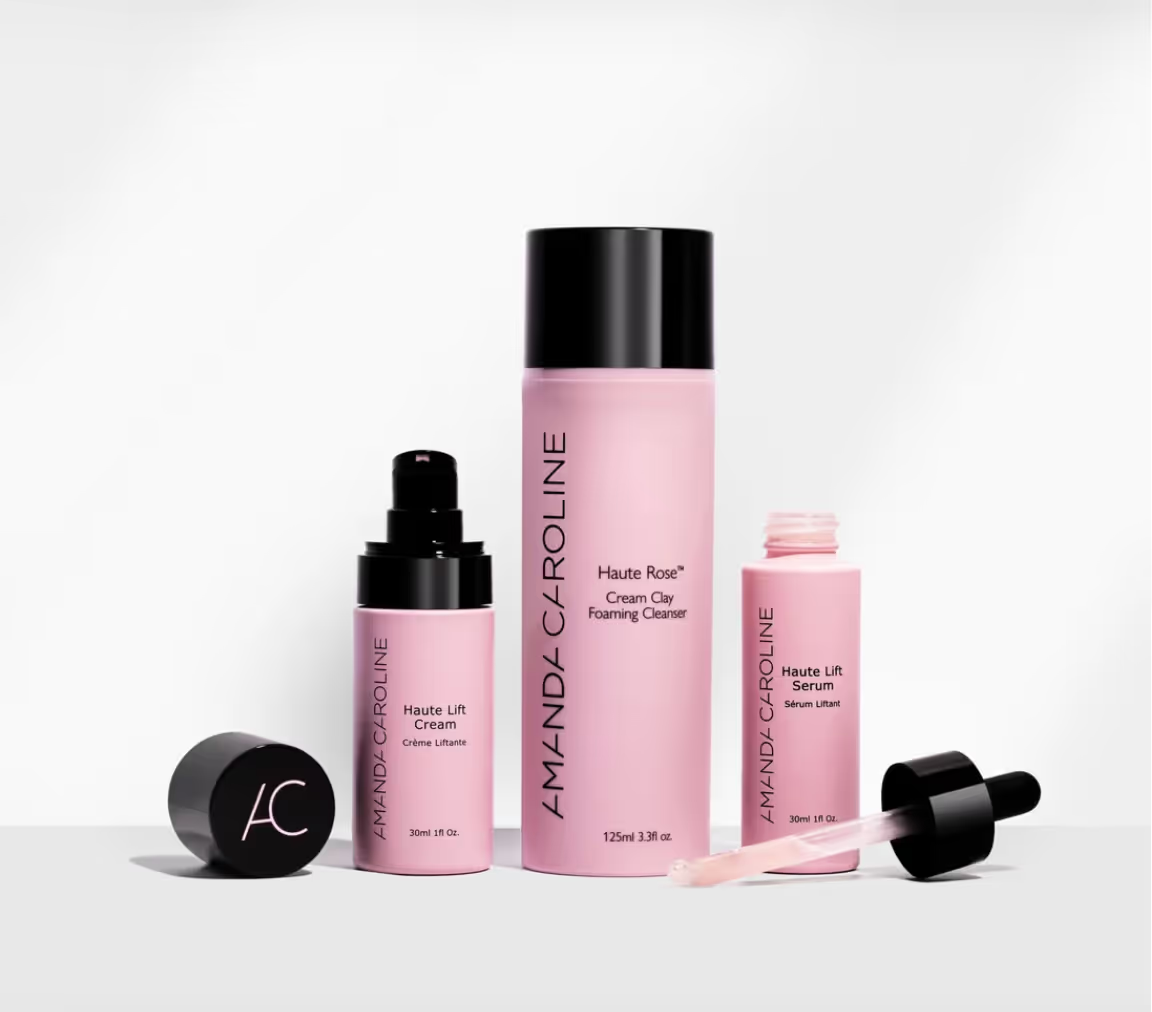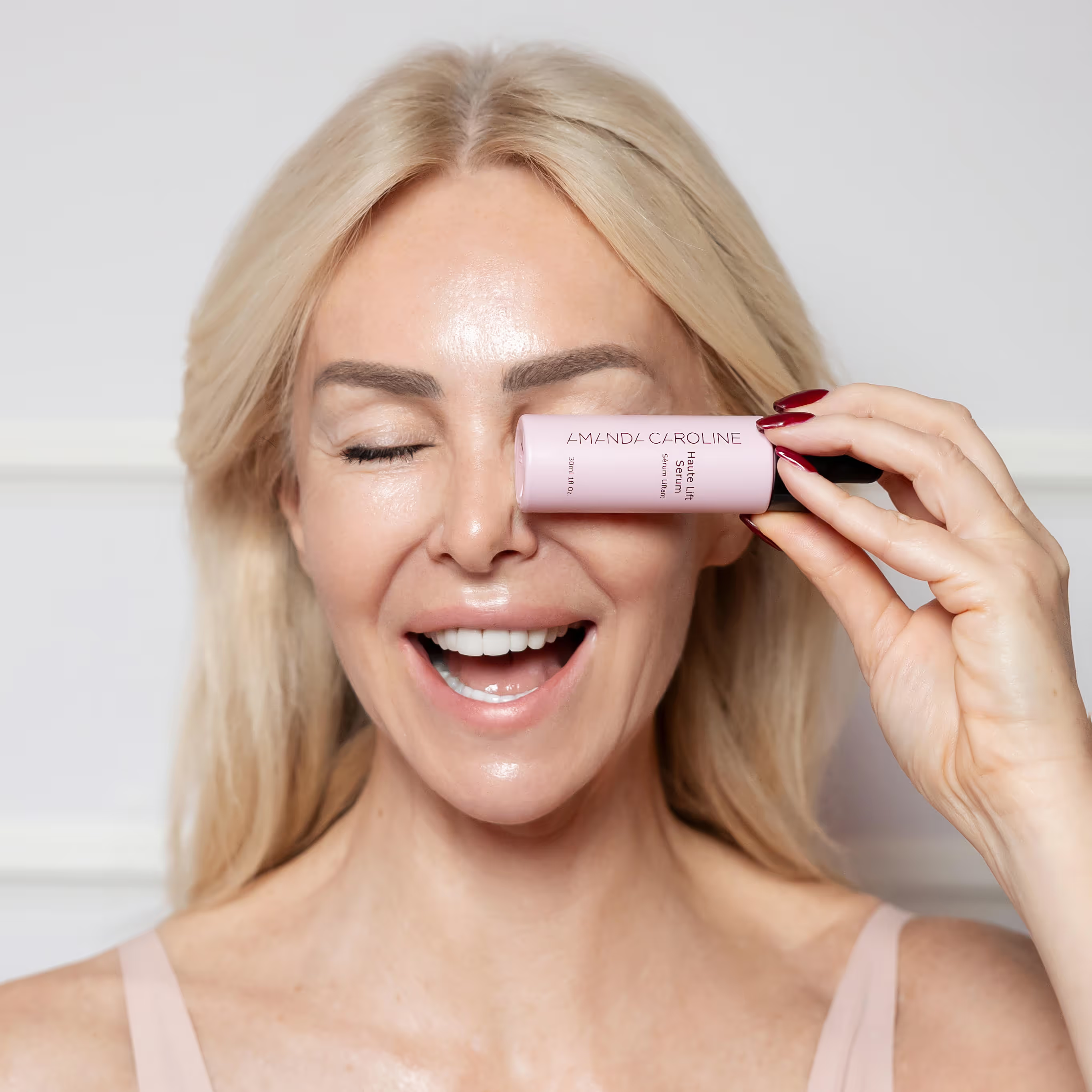Treatments.
Before You Start.
Embracing a thoughtful and comprehensive approach to beauty: understanding the limitations of the Effortless Beauty trend.
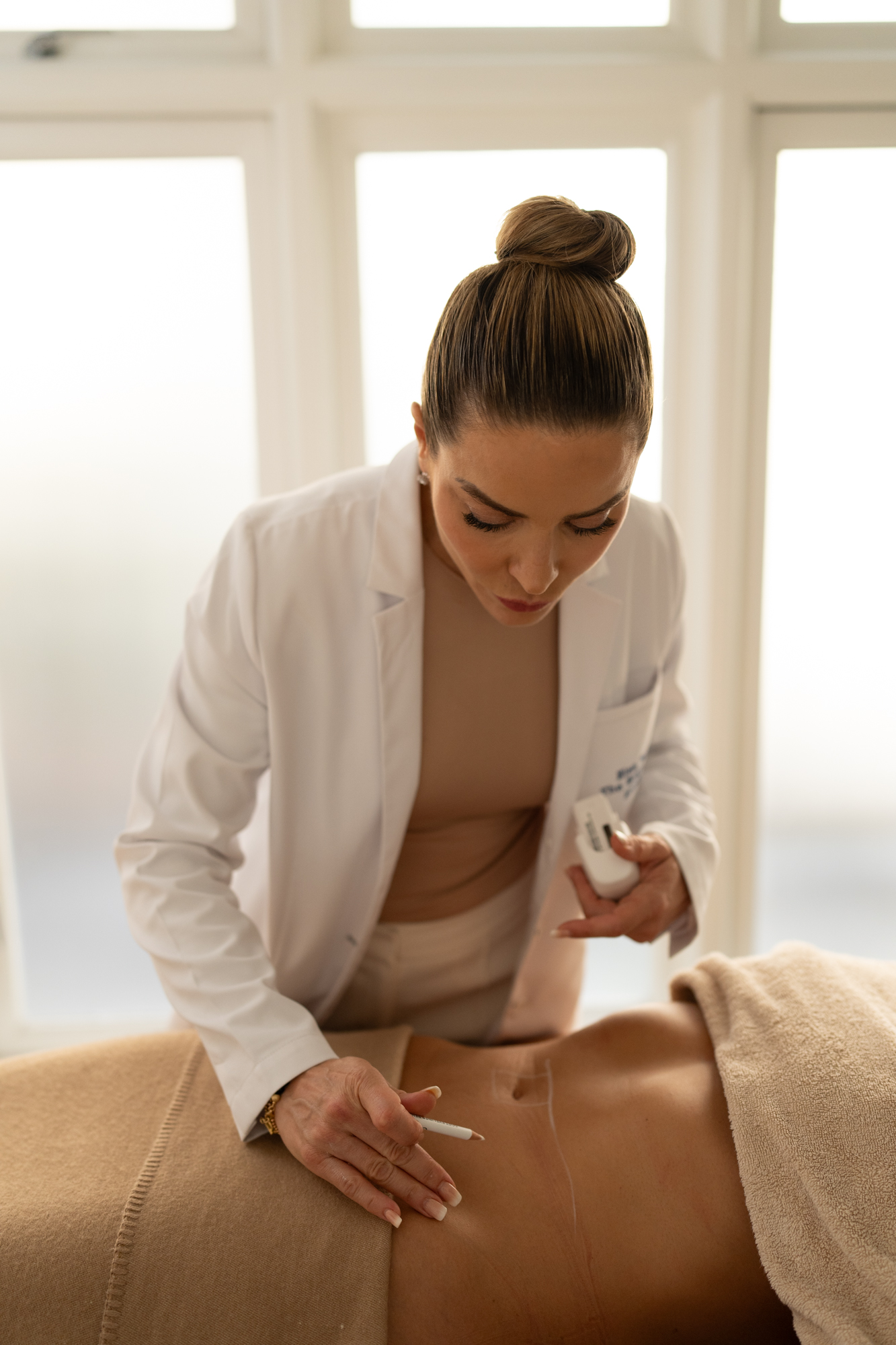
Safety & Precautions.
We caution our clients about the risks associated with the Effortless Beauty trend.
Effortless Beauty approach suggests that achieving beautiful skin requires minimal effort, often through easy routines or quick solutions. Though it promises convenience and fast results, it can ultimately harm skin health and undermine effective skincare practices.
Contrastingly, the Effortful Beauty approach emphasizes the importance of consistent, tailored skincare routines that prioritize long-term skin health. By committing to more thoughtful and personalised care, clients can achieve sustainable beauty results that truly benefit their skin over time.
Effortless Beauty Pitfalls.
Effortless beauty promotes the allure of achieving desirable skin outcomes with minimal effort, often through simplified routines or quick-fix products. While this concept appeals to convenience and immediate results, it can lead to several detrimental effects on skin health and care practices.
Neglect of Proper Skincare Routine
- Effortless beauty perpetuates the notion that achieving skincare goals requires minimal effort, often leading individuals to underestimate the importance of a consistent skincare routine. Regular cleansing is essential for removing dirt, oil, and pollutants that accumulate on the skin throughout the day. Skipping this step can clog pores, leading to breakouts and dullness. Moisturizing is crucial as it helps maintain the skin's hydration levels, prevents dryness, and supports the skin barrier function. Sun protection is non-negotiable to shield the skin from harmful UV rays that can cause premature aging, sunburns, and skin cancers. Neglecting these basic skincare steps under the guise of effortless beauty can compromise skin health over time, making it more prone to various dermatological issues.
- Furthermore, effortless beauty often overlooks the individualized nature of skincare needs. Different skin types require tailored approaches, which professional guidance can provide. Establishing a skincare routine involves more than just applying products; it requires understanding one's skin type, concerns, and goals. Without a consistent routine, the skin's natural balance can be disrupted, leading to sensitivity, inflammation, and accelerated aging. Therefore, promoting the importance of a comprehensive skincare regimen that includes cleansing, moisturizing, and sun protection is essential for maintaining healthy, resilient skin in the long term.
- In essence, effortless beauty's promotion of minimal skincare effort neglects the fundamental practices that sustain skin health. A routine that incorporates regular cleansing to remove impurities, adequate moisturization to nourish and protect, and diligent sun protection to prevent UV damage is vital. By prioritizing these steps and understanding their significance, individuals can achieve not only immediate improvements in skin appearance but also long-term benefits in maintaining skin health and resilience.
Overuse of Quick-Fix Products
- The allure of quick-fix skincare products promising instant results can lead individuals to overlook the potential risks and consequences. These products often contain potent active ingredients or harsh chemicals designed to produce visible changes quickly. However, improper or excessive use can disrupt the skin's natural balance, causing irritation, redness, dryness, or even more severe reactions like allergic dermatitis. The skin's tolerance and reaction to such ingredients vary greatly among individuals, making professional guidance essential to navigate the complexities of skincare effectively.
- Moreover, relying on quick-fix solutions without understanding their formulation and intended use can exacerbate existing skin issues. For instance, treating acne with overly drying products may strip the skin of essential oils, leading to rebound oil production and worsening breakouts. Similarly, using strong exfoliants without proper instruction can damage the skin barrier, resulting in increased sensitivity and vulnerability to environmental stressors. Therefore, while quick-fix products may offer immediate gratification, their long-term impact on skin health and resilience must be carefully considered and monitored.
- Ultimately, the overuse of quick-fix skincare products underscores the importance of informed decision-making and professional advice. Understanding the ingredients, potential side effects, and appropriate application techniques ensures that skincare products enhance rather than compromise skin health. By prioritizing skin safety and efficacy over immediate results, individuals can maintain a balanced approach to skincare that supports long-term wellness and resilience.
Lack of Professional Guidance
- Effortless beauty often dismisses the invaluable role of professional skincare consultations in achieving optimal skin health. Skincare professionals possess expertise in identifying individual skin concerns, recommending suitable products, and devising personalized treatment plans. Without this guidance, individuals may resort to trial-and-error approaches or rely on anecdotal recommendations, risking ineffective treatments or exacerbation of existing skin issues.
- Professional consultations go beyond product recommendations; they involve comprehensive skin assessments to understand factors such as skin type, sensitivity, allergies, and specific concerns like acne or pigmentation. This holistic approach ensures that skincare routines and treatments are tailored to address unique needs effectively. Additionally, professionals provide crucial insights into the proper application techniques, frequency of use, and potential interactions between skincare products, ensuring optimal results and minimizing adverse effects.
- In summary, the absence of professional guidance under the guise of effortless beauty can hinder individuals from achieving their skincare goals. By emphasizing the importance of expert consultations, skincare professionals empower individuals to make informed decisions, optimize treatment outcomes, and maintain long-term skin health and resilience. Seeking professional advice is an investment in skincare that prioritizes safety, efficacy, and personalized care, ultimately supporting a balanced and effective approach to achieving beautiful, healthy skin.
Ignoring Underlying Issues
- Effortless beauty's emphasis on quick fixes and superficial solutions can lead individuals to overlook underlying skin issues such as acne, rosacea, or dermatitis. Instead of addressing these conditions at their root causes, such as hormonal imbalance or sensitivity to certain ingredients, effortless beauty may encourage masking them with makeup or temporary concealers. While these cosmetic solutions provide immediate relief by covering up blemishes or redness, they do not address the fundamental reasons causing these skin concerns.
- By neglecting to treat underlying skin issues, individuals risk exacerbating their condition over time. For instance, acne that is merely covered with makeup instead of treated with appropriate skincare products may worsen, leading to more extensive breakouts, inflammation, and potential scarring. Similarly, delaying treatment for conditions like rosacea or eczema can prolong discomfort and compromise skin health. Proper skincare involves identifying and addressing the root causes of these issues through targeted treatments and lifestyle adjustments, which effortless beauty often overlooks.
- Therefore, adopting a comprehensive approach to skincare that includes identifying and treating underlying skin concerns is essential for long-term skin health. This approach not only improves the appearance of the skin but also promotes its overall resilience and well-being. By prioritizing treatment over concealment, individuals can achieve lasting results and maintain a healthy complexion.
Inconsistent Use
- Effective skincare treatments, especially those containing active ingredients like retinoids or alpha hydroxy acids (AHAs), require consistent application to deliver optimal results. These ingredients work by promoting cell turnover, enhancing collagen production, or exfoliating dead skin cells, which can improve skin texture, tone, and overall appearance. However, the efficacy of such treatments is directly influenced by their regular and correct application.
- Inconsistent use of skincare products undermines their effectiveness and can lead to suboptimal outcomes. For example, products designed to treat hyperpigmentation or fine lines require daily application as prescribed to achieve noticeable improvements over time. Skipping applications or using products sporadically can delay results and diminish the overall benefits of the treatment regimen.
- Moreover, inconsistent use of skincare products may lead to unintended consequences such as skin irritation or sensitivity. Abrupt changes in skincare routines can disrupt the skin's barrier function, causing dryness, redness, or flakiness. To avoid these issues, it is crucial to adhere to a consistent skincare regimen tailored to individual skin needs and treatment goals. This approach ensures that active ingredients can work synergistically to deliver desired outcomes effectively.
Misleading Marketing Claims
- Effortless beauty often capitalizes on marketing tactics that promise effortless and instant results, enticing consumers with the allure of achieving flawless skin effortlessly. However, many of these claims are exaggerated and misleading, creating unrealistic expectations among consumers. Products marketed as "miracle solutions" or "quick fixes" may suggest that significant improvements can be achieved without effort or time investment.
- Such marketing tactics not only oversimplify the complexities of skincare but also undermine the importance of informed decision-making and realistic expectations. Consumers may purchase products expecting dramatic results overnight, only to be disappointed when these promises fall short. This can lead to frustration, distrust in skincare brands, and unnecessary expenditure on ineffective products.
- Furthermore, misleading marketing claims can contribute to the misuse of skincare products. Consumers may apply products excessively or combine multiple treatments in an attempt to expedite results, unaware of potential risks or interactions. This misuse can result in skin irritation, allergic reactions, or other adverse effects, further complicating skincare routines and compromising skin health.
Overlooking Essential Aftercare
- Proper aftercare following beauty treatments like chemical peels or laser therapy is critical for ensuring optimal healing and treatment outcomes. These procedures can cause temporary skin sensitivity, redness, or peeling, making diligent post-procedure care essential to minimize discomfort and support skin recovery. Effortless beauty ideals may lead patients to underestimate the importance of aftercare, assuming that minimal effort or attention is sufficient. However, neglecting proper post-procedure routines can prolong recovery times and increase the risk of complications such as infections or uneven healing.
- Effective aftercare typically involves gentle cleansing, moisturizing, and sun protection tailored to the skin's specific needs post-treatment. For instance, moisturizers with soothing ingredients can help replenish hydration and soothe irritation, while avoiding harsh or abrasive products that could exacerbate sensitivity. Additionally, adhering to recommended sun protection measures is crucial, as treated skin is more susceptible to UV damage, which can lead to pigmentation issues and compromise long-term results.
- By prioritizing comprehensive aftercare practices, patients can support their skin's healing process, enhance treatment effectiveness, and minimize the likelihood of adverse reactions or complications. This approach ensures that the benefits of beauty treatments are maximized while promoting overall skin health and well-being.
Misusing Products
- The allure of quick fixes in effortless beauty can lead patients to misuse or overuse post-treatment products, particularly those containing potent active ingredients. Believing that more frequent or intensive application will expedite results, patients may inadvertently cause skin irritation, redness, or increased sensitivity. This misuse can compromise the skin's barrier function and hinder the recovery process, undermining the intended benefits of the treatment.
- Proper product usage post-treatment involves following specific instructions provided by skincare professionals. This includes applying products in recommended quantities and frequencies to avoid overloading the skin with active ingredients that may overwhelm its tolerance levels. For example, using excessive amounts of retinol-based creams or exfoliants can lead to dryness, flakiness, or heightened sensitivity, negating the treatment's therapeutic effects.
- Education about appropriate product usage and adherence to skincare guidelines are crucial to prevent misuse and ensure optimal treatment outcomes. Skincare professionals play a pivotal role in educating patients on the correct application techniques, monitoring skin responses, and adjusting treatment plans as necessary. This collaborative approach helps patients achieve desired results safely while maintaining skin health and minimizing potential risks associated with improper product use.
Inconsistent Routine
- Consistency is paramount in maintaining the effectiveness of beauty treatments, especially those involving advanced procedures or active ingredients. Beauty treatments such as chemical peels, microdermabrasion, or laser therapy require a disciplined and regular skincare regimen to sustain results and minimize complications. Effortless beauty, which advocates minimal effort and quick solutions, often contradicts these requirements by promoting irregular skincare routines.
- An inconsistent skincare routine can compromise treatment outcomes by disrupting the skin's adaptation to active ingredients or therapeutic processes. For instance, irregular application of prescribed skincare products may diminish their efficacy in addressing specific skin concerns like acne, hyperpigmentation, or aging signs. Moreover, gaps in treatment adherence can hinder progress and delay desired improvements, frustrating patients expecting immediate or effortless results.
- To optimize treatment benefits and maintain skin health, patients should adhere strictly to recommended skincare protocols outlined by skincare professionals. This involves establishing a structured routine that includes cleansing, treatment application, moisturizing, and sun protection tailored to individual skin needs and treatment goals. By prioritizing consistency in skincare practices, patients can enhance treatment efficacy, achieve sustainable results, and promote long-term skin wellness.
Ignoring Signs of Irritation
- In the pursuit of effortless beauty, patients may overlook early signs of skin irritation or adverse reactions following beauty treatments. Assuming that minimal effort equates to less scrutiny of skin responses, individuals may dismiss symptoms such as redness, itching, or discomfort, attributing them to temporary effects or the treatment process itself. However, ignoring these warning signs can exacerbate skin conditions and necessitate medical intervention, compromising overall treatment outcomes.
- Timely recognition and proactive management of skin reactions are crucial for mitigating potential complications and optimizing treatment benefits. Patients should be vigilant in monitoring their skin's responses post-treatment, noting any changes in texture, sensitivity, or appearance. Prompt consultation with skincare professionals is recommended if symptoms persist or worsen, as they can provide tailored recommendations and adjustments to the treatment plan.
- By prioritizing awareness and responsiveness to skin reactions, patients can mitigate risks associated with treatment-induced irritation and facilitate a smoother recovery process. This proactive approach not only safeguards skin health but also ensures that treatment objectives are met effectively, supporting long-term skin resilience and well-being.
False Expectations
- Effortless beauty fosters unrealistic expectations regarding the immediacy and simplicity of achieving desired results from beauty treatments. Patients may be misled by marketing claims promising effortless and instant transformations, expecting dramatic improvements without adequate time or commitment to the treatment process. Such misconceptions can lead to impatience and premature discontinuation of treatment plans, undermining the potential benefits and long-term efficacy of skincare interventions.
- Achieving meaningful improvements in skin health and appearance requires patience, consistency, and realistic expectations. Beauty treatments, whether targeting acne, signs of aging, or skin tone irregularities, often necessitate gradual progress and incremental changes over time. Effortless beauty ideals that promise quick fixes fail to acknowledge the complexities of skincare and the individual variability in treatment responses.
- Educating patients about the realistic timelines and expected outcomes of beauty treatments is essential for managing expectations and fostering informed decision-making. Skincare professionals play a crucial role in setting realistic goals, outlining treatment timelines, and addressing patient concerns to ensure transparency and alignment with achievable results. By cultivating realistic expectations, patients can approach skincare treatments with confidence, commitment, and a clear understanding of the journey towards sustainable skin health.
Compromised Healing
- Proper healing following intensive beauty treatments like microdermabrasion or laser therapy requires meticulous care and adherence to post-procedure guidelines. These treatments often induce temporary skin sensitivity, redness, or flaking as part of the healing process, necessitating careful management to promote optimal recovery and minimize potential complications.
- Effortless beauty's emphasis on shortcuts or minimal effort may inadvertently impede the healing process by neglecting essential aftercare practices. Patients may underestimate the significance of post-procedure care, assuming that minimal attention or follow-up is sufficient for recovery. However, inadequate aftercare can prolong healing times, exacerbate skin irritation, or increase the risk of adverse effects such as infections or scarring.
- Comprehensive aftercare strategies typically involve gentle cleansing, moisturizing, and sun protection tailored to the specific needs of treated skin. For instance, avoiding sun exposure and using protective clothing or sunscreen is crucial to prevent UV-induced damage and pigmentation issues post-treatment. Additionally, skincare professionals may recommend soothing skincare products or topical treatments to alleviate discomfort and support skin recovery.
- By prioritizing diligent aftercare practices, patients can facilitate a smoother healing process, optimize treatment outcomes, and enhance overall skin resilience. This proactive approach not only accelerates recovery but also promotes long-term skin health and preserves the benefits achieved through beauty treatments.
Inadequate Sun Protection
- Certain beauty treatments, such as chemical peels or laser therapy, can increase skin sensitivity to UV radiation following the procedure. Effortless beauty often overlooks the critical need for rigorous sun protection in post-treatment care, exposing treated skin to the risk of sunburn, pigmentation issues, and premature aging.
- Proper sun protection is essential to safeguard the skin's integrity and maintain treatment results over time. Patients should adhere to strict sun avoidance during peak hours, wear broad-spectrum sunscreen with a high SPF, and reapply sunscreen as recommended to mitigate UV-induced damage. Additionally, using protective clothing, hats, and sunglasses offers further defense against harmful UV rays that can compromise skin health.
- Neglecting adequate sun protection post-treatment can diminish the benefits of beauty procedures and undermine efforts to achieve desired skin improvements. UV exposure not only exacerbates existing skin concerns but also increases the likelihood of developing new issues such as sunspots or uneven pigmentation. Therefore, integrating robust sun protection measures into daily skincare routines is paramount for preserving skin health, supporting treatment outcomes, and promoting long-term skin resilience.
Effortless beauty may appear appealing with its promise of simplicity and quick results, but it comes with substantial risks for patients undergoing beauty treatments.
From neglecting essential skincare routines to misusing products and fostering unrealistic expectations, these factors can hinder treatment success and compromise long-term skin health.
Recognizing these risks is crucial for both patients and skincare professionals to ensure informed decisions, optimal care, and sustainable improvements in skin condition.
Understanding the complexities of skincare and adhering to tailored treatment plans are fundamental to achieving healthy, radiant skin over time.

Safety & Precautions.
We caution our clients about the risks associated with the Effortless Beauty trend.










